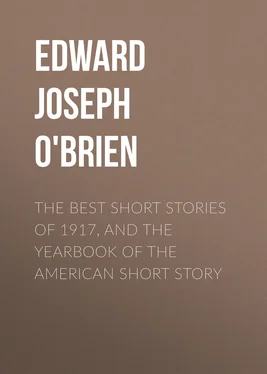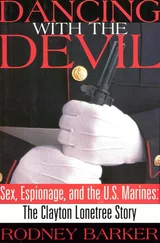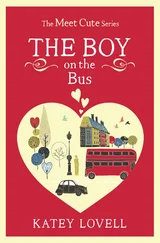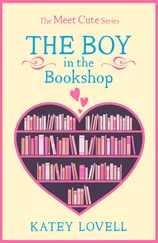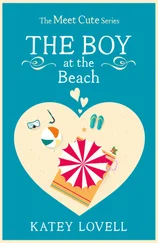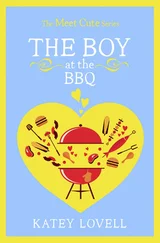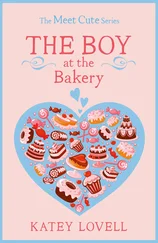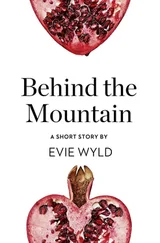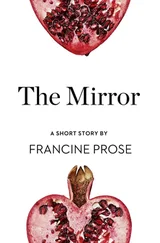Edward O'Brien - The Best Short Stories of 1917, and the Yearbook of the American Short Story
Здесь есть возможность читать онлайн «Edward O'Brien - The Best Short Stories of 1917, and the Yearbook of the American Short Story» — ознакомительный отрывок электронной книги совершенно бесплатно, а после прочтения отрывка купить полную версию. В некоторых случаях можно слушать аудио, скачать через торрент в формате fb2 и присутствует краткое содержание. Издательство: Иностранный паблик, Жанр: foreign_prose, literature_20, foreign_antique, на английском языке. Описание произведения, (предисловие) а так же отзывы посетителей доступны на портале библиотеки ЛибКат.
- Название:The Best Short Stories of 1917, and the Yearbook of the American Short Story
- Автор:
- Издательство:Иностранный паблик
- Жанр:
- Год:неизвестен
- ISBN:нет данных
- Рейтинг книги:3 / 5. Голосов: 1
-
Избранное:Добавить в избранное
- Отзывы:
-
Ваша оценка:
- 60
- 1
- 2
- 3
- 4
- 5
The Best Short Stories of 1917, and the Yearbook of the American Short Story: краткое содержание, описание и аннотация
Предлагаем к чтению аннотацию, описание, краткое содержание или предисловие (зависит от того, что написал сам автор книги «The Best Short Stories of 1917, and the Yearbook of the American Short Story»). Если вы не нашли необходимую информацию о книге — напишите в комментариях, мы постараемся отыскать её.
The Best Short Stories of 1917, and the Yearbook of the American Short Story — читать онлайн ознакомительный отрывок
Ниже представлен текст книги, разбитый по страницам. Система сохранения места последней прочитанной страницы, позволяет с удобством читать онлайн бесплатно книгу «The Best Short Stories of 1917, and the Yearbook of the American Short Story», без необходимости каждый раз заново искать на чём Вы остановились. Поставьте закладку, и сможете в любой момент перейти на страницу, на которой закончили чтение.
Интервал:
Закладка:
Elsewhere I have discussed at some length the more important volumes of short stories published during the year. "A Munster Twilight," by Daniel Corkery is alone sufficient to mark a notable literary year. And "The Echo of Voices," by Richard Curle is hardly second to it. Yet the year has seen the publication of at least three other books by English authors who are new to the reading public. Thomas Burke, Caradoc Evans, and Arthur Machen have added permanent contributions to English literature.
In "A Handbook on Story Writing," Dr. Blanche Colton Williams has written the first definitive textbook on the subject. Its many predecessors have either been content to deal with narrow branches in the same field, or have exploited quite frankly and shamelessly the commercial possibilities of story writing as a cheap trade. Dr. Williams's book will not be in all likelihood superseded for many years to come, and the effects of her work are already to be seen in the short stories of many established writers.
In the death of Edward Thomas, England has lost a rare artist who, in his particular field, was only rivalled by Richard Jefferies.
During the past year the Seven Arts and the Masses have ceased publication. The Craftsman, which ceased publication a year ago, has been succeeded by the Touchstone, which is already beginning to print many interesting stories; and to the list of magazines which publish short stories must now be welcomed the Bookman.
As it has been my happiness in past years to associate this annual with the names of Benjamin Rosenblatt and Richard Matthews Hallet, whose stories, "Zelig" and "Making Port," seemed to me respectively the best short stories of 1915 and 1916, so it is my pleasure and honor this year to dedicate the best that I have found in the American magazines as the fruit of my labors to Wilbur Daniel Steele, who has contributed to American literature, preëminently in "Ching, Ching, Chinaman," and almost as finely in "White Hands" and "The Woman At Seven Brothers," three stories which take their place for finality, to the best of my belief, in the great English line.
Edward J. O'Brien.South Yarmouth, Massachusetts,
December 23, 1917.
THE BEST SHORT STORIES OF 1917
Note. The twenty stories which follow are arranged in the alphabetical order of their authors' names. This arrangement does not imply any precedence in merit of particular stories.
THE EXCURSION 1 1 Copyright, 1917, by The Pictorial Review Company. Copyright, 1918, by Edwina Stanton Babcock.
Mrs. Tuttle arrived breathless, bearing a large gilt parrot-cage. She swept up the gangway of the Fall of Rome and was enthusiastically received. There were, however, concealed titterings and suppressed whispers. "My sakes! She's went and brought that bird."
"I won't believe it till I see it."
"There he sets in his gold coop."
Mrs. Turtle brought Romeo to the excursion with the same assurance that a woman of another stamp brings her Pekingese dog to a restaurant table. While the Fall of Rome sounded a warning whistle, and hawsers were loosed she adjusted her veil and took cognizance of fellow passengers.
In spite of wealth and "owning her own automobile," Mrs. Turtle's fetish was democratic popularity. She greeted one after another.
"How do, Mis' Bridge, and Mister, too! Who's keeping store while you're away?
"Carrie Turpin! You here? Where's Si? Couldn't come? Now that's too bad!" After a long stare, "You're some fleshier, ain't you, Carrie?"
A large woman in a tan-colored linen duster came slowly down the deck, a camp-stool in either hand. Her portly advance was intercepted by Mrs. Tuttle.
"Mis' Tinneray! Same as ever!"
Mrs. Tinneray dropped the camp-stools and adjusted her smoked glasses; she gave a start and the two ladies embraced.
Mrs. Tuttle said that "it beat all," and Mrs. Tinneray said "she never!"
Mrs. Tuttle, emerged from the embrace, re-adjusting her hat with many-ringed fingers, inquiring, "How's the folks?"
Up lumbered Mr. Tinneray, a large man with a chuckle and pale eyes, who was introduced by the well-known formula, "Mis' Tuttle, Mr. Tinneray, Mr. Tinneray, Mis' Tuttle."
The Tinnerays said, "So you brought the bird along, hey?" Then, without warning, all conversation ceased. The Fall of Rome , steaming slowly away from the pier, whistled a sodden whistle, the flags flapped, every one realized that the excursion had really begun.
This excursion was one of the frank displays of human hopes, yearnings, and vanities, that sometimes take place on steamboats. Feathers had a hectic brilliancy that proved secret, dumb longings. Pendants known as "lavaleers" hung from necks otherwise innocent of the costly fopperies of Versailles. Old ladies clad in princess dresses with yachting caps worn rakishly on their grey hair, vied with other old ladies in automobile bonnets, who, with opera glasses, searched out the meaning of every passing buoy. Young girls carrying "mesh-bags," that subtle connotation of the feminine character, extracted tooth-picks from them or searched for bits of chewing gum among their over scented treasures.
As it was an excursion, the Fall of Rome carried a band and booths laden with many delicious superfluities such as pop-corn and the misleading compound known as "salt-water taffy." There were, besides, the blue and red pennants that always go on excursions, and the yellow and pink fly-flappers that always come home from them; also there were stacks of whistle-whips and slender canes with ivory heads with little holes pierced through. These canes were bought only by cynical young men whose new straw hats were fastened to their persons by thin black strings. Each young man, after purchasing an ivory-headed cane retired to privacy to squint through it undisturbed. Emerging from this privacy the young man would then confer with other young men. What these joyless young men saw when they squinted they never revealed. But among their elders they spread the strong impression that it was the Capital at Washington or Bunker Hill Monument.
Besides bottled soda and all soft drinks the Fall of Rome carried other stimuli in the shape of comic gentlemen—such beings, as, more or less depressed in their own proper environment, on excursions suddenly see themselves in their true light, irresistibly facetious. These funny gentlemen, mostly husbands, seated themselves near to large groups of indulgent women and kept up an exquisite banter directed at each other's personal defects, or upon the idiosyncrasies of any bachelor or spinster near. These funny gentlemen kept alluding to the excursion as the "Exertion." If the boat rolled a little they said, "Now, Mother, don't rock the boat."
"Here, girls, sit up close, we'll all go down together."
"Hold on to yer beau, Minnie. He'll fall overboard and where'll you git another?"
The peals of laughter at these sallies were unfailing. The crunch of peanuts was unfailing. The band, with a sort of plethoric indulgence, played slow waltzes in which the bass instruments frequently misapplied notes, but to the allure of which came youthful dancers lovely in proud awkward poses.
Mrs. Tuttle meanwhile was the social center, demonstrating that mysterious psychic force known as being the "life of the party." She advanced upon a tall sallow woman in mourning, challenging, "Now Mis' Mealer, why don't you just set and take a little comfort, it won't cost you nothing? Ain't that your girl over there by the coffee fountain? I should ha' known her by the reesemblance to you; she's rill refined lookin'."
Mrs. Mealer, a tall, sallow widow with carefully maintained mourning visage, admitted that this was so. Refinement, she averred, was in the family, but she hinted at some obscure ailment which, while it made Emma refined, kept her "mizzable."
Читать дальшеИнтервал:
Закладка:
Похожие книги на «The Best Short Stories of 1917, and the Yearbook of the American Short Story»
Представляем Вашему вниманию похожие книги на «The Best Short Stories of 1917, and the Yearbook of the American Short Story» списком для выбора. Мы отобрали схожую по названию и смыслу литературу в надежде предоставить читателям больше вариантов отыскать новые, интересные, ещё непрочитанные произведения.
Обсуждение, отзывы о книге «The Best Short Stories of 1917, and the Yearbook of the American Short Story» и просто собственные мнения читателей. Оставьте ваши комментарии, напишите, что Вы думаете о произведении, его смысле или главных героях. Укажите что конкретно понравилось, а что нет, и почему Вы так считаете.
